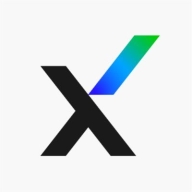


Trellix Cloud Workload Security and Microsoft Defender for Cloud compete in the cloud security domain. Microsoft Defender for Cloud holds an advantage due to its extensive integration capabilities and comprehensive security.
Features: Trellix Cloud Workload Security provides advanced threat detection and protection tailored for cloud workloads, while Microsoft Defender for Cloud offers robust integration with Microsoft's ecosystem and advanced threat intelligence.
Ease of Deployment and Customer Service: Trellix Cloud Workload Security offers streamlined deployment processes and responsive customer service. Microsoft Defender for Cloud requires more comprehensive planning for deployment, supported by extensive Microsoft resources.
Pricing and ROI: Trellix Cloud Workload Security has competitive setup costs, offering strong ROI for economically efficient businesses. Microsoft Defender for Cloud, though costlier, justifies its price with enhanced security features and integration benefits.
| Product | Market Share (%) |
|---|---|
| Microsoft Defender for Cloud | 14.8% |
| SentinelOne Singularity Cloud Security | 3.7% |
| Trellix Cloud Workload Security | 0.5% |
| Other | 81.0% |



| Company Size | Count |
|---|---|
| Small Business | 46 |
| Midsize Enterprise | 20 |
| Large Enterprise | 53 |
| Company Size | Count |
|---|---|
| Small Business | 26 |
| Midsize Enterprise | 7 |
| Large Enterprise | 45 |
SentinelOne Singularity Cloud Security offers a streamlined approach to cloud security with intuitive operation and strong integration capabilities for heightened threat detection and remediation efficiency.
Singularity Cloud Security stands out for its real-time detection and response, effectively minimizing detection and remediation timelines. Its automated remediation integrates smoothly with third-party tools enhancing operational efficiency. The comprehensive console ensures visibility and support for forensic investigations. Seamless platform integration and robust support for innovation are notable advantages. Areas for development include improved search functionality, affordability, better firewall capabilities for remote users, stable agents, comprehensive reporting, and efficient third-party integrations. Clarity in the interface, responsive support, and real-time alerting need enhancement, with a call for more automation and customization. Better scalability and cost-effective integration without compromising capabilities are desired.
What are SentinelOne Singularity Cloud Security's standout features?SentinelOne Singularity Cloud Security is deployed in industries needing robust cloud security posture management, endpoint protection, and threat hunting. Utilized frequently across AWS and Azure, it assists in monitoring, threat detection, and maintaining compliance in diverse environments while providing real-time alerts and recommendations for proactive threat management.
Microsoft Defender for Cloud is a comprehensive security solution that provides advanced threat protection for cloud workloads. It offers real-time visibility into the security posture of cloud environments, enabling organizations to quickly identify and respond to potential threats. With its advanced machine learning capabilities, Microsoft Defender for Cloud can detect and block sophisticated attacks, including zero-day exploits and fileless malware.
The solution also provides automated remediation capabilities, allowing security teams to quickly and easily respond to security incidents. With Microsoft Defender for Cloud, organizations can ensure the security and compliance of their cloud workloads, while reducing the burden on their security teams.
Trellix Cloud Workload Security is a comprehensive security solution designed to protect cloud workloads from advanced threats. It provides real-time visibility and control over cloud workloads, enabling organizations to quickly detect and respond to threats.
The most useful functionality of the solution includes automated threat detection, continuous compliance monitoring, and workload protection. With these features, organizations can ensure their cloud workloads are secure and compliant with industry regulations. Trellix Cloud Workload Security helps organizations reduce the risk of data breaches, protect sensitive data, and ensure compliance with regulatory requirements.
We monitor all Cloud Workload Protection Platforms (CWPP) reviews to prevent fraudulent reviews and keep review quality high. We do not post reviews by company employees or direct competitors. We validate each review for authenticity via cross-reference with LinkedIn, and personal follow-up with the reviewer when necessary.